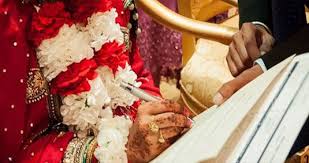Court marriage in Tonk is the most common type of marriage. It is a very simple marriage ceremony, without any show or pomp. However, inter-caste or inter-religious couples also prefer to marry in Arya Samaj temple. If you are interested in court marriage in Tonk and if you are also planning to get married there, then you must do some preparations well in advance. You should know about the customs and traditions in that region before actually getting engaged on the auspicious occasion of court marriage. Rajasthan is famous for its rich cultural heritage and so is its love for arranged marriages. There are several reasons for this, among which social factors like caste, religion, region and other such aspects play an important role. However, most of the times, arranged marriages in Rajasthan are considered to be completely valid. So, in case you too are planning to tie the knot on a religious occasion in Rajasthan - whether on the wedding of the bride or on marriage of the groom with the permission of the court - you should be aware of all the legal formalities. Marriage in Tonk is mostly considered to be a religious activity. So, it follows a different set of rules and norms from other courts weddings. Besides the bride and the groom, there are many close family members and friends of both the families involved in the wedding celebrations. In order to ensure that the marriage is conducted in a dignified manner, you need to have legally arranged marriage certificates. Court marriage in arya samaj is considered to be a religious service and if you are unable to fulfill all the requirements and norms then you might have to face several problems in future. If you want to get married legally in a court then you must consult an attorney and then you can proceed for the marriage ceremony. There are many attorneys in the city who are specialized in the field of law and order of marriage and they will help you to get registered legally and also you can plan your marriage ceremony and organize the marriage ceremony according to your convenience. Court marriage in the same court is a traditional ceremony that is practiced in certain parts of India. The ceremony involves an application being made by one party to the court asking that the marriage should be performed between him and the other party. The applicant then enters into a queue opposite the other party then makes his application to the court requesting the marriage to be performed. If the request is granted then the two parties are wed.
Court Marriage is a common procedure, which has to be followed by everyone. If a marriage is not registered it is not considered valid during legal procedures such as, applying for a joint home loan. You could also be fined for not registering your marriage. It is a rule that all the marriages have to be registered whether you are having a wedding ceremony or not.
A marriage certificate is an important proof, in case there are some problems between you and your spouse in the future and a legal action needs to be taken.
Advantages of Court Marriage Certificate:-
• Certificate of Marriage is a document, which provides valuable evidence of marriage;
• Certificate of Marriage is a document providing social security, self-confidence particularly among married Women.
• Court Marriage Certificate is useful in getting the visa for the wife/husband.
• It will be helpful in claiming the Bank deposits or Life Insurance benefits when the depositee or the Insurer dies without a nomination or otherwise.
Documents required for the Performance & Registration of Court Marriage
1. Passport Size Photographs – four each of Marrying Persons.
2. Residential Proof (Voter Card / Passport / Ration Car / Driving License / Bank Passbook / Lease Deed / Rent Deed) of Marrying Persons.
3. Date of Birth Proof (Municipal Corporation Certificate, X th or XII th Examination Certificate, Passport, PAN Card) of Marrying Persons.
4. If any party is divorcee Certified copy of Decree of Divorce granted by the Court.
5. If any party is widow / widower Death Certificate of the dead spouse.
6. If any party is a Foreign Citizen or holding a foreign Passport or is having foreign residential address – Certificate of Present Marital Status of the party / No Impediment Certificate / NOC from concerned Embassy and Valid VISA.
7. Two Witnesses (Both should be major)



